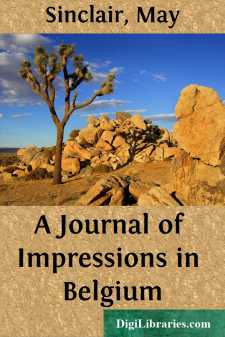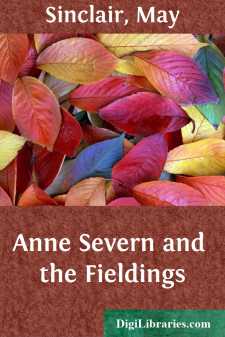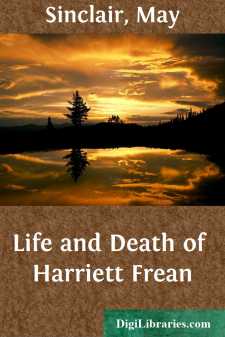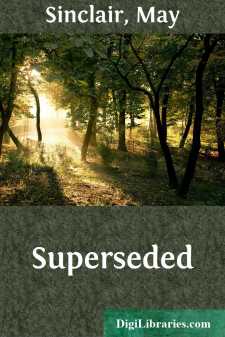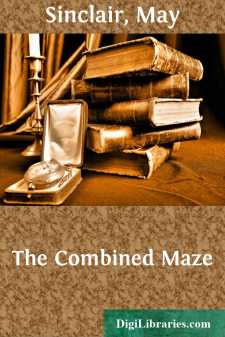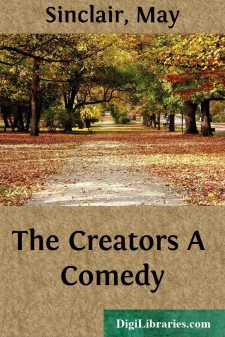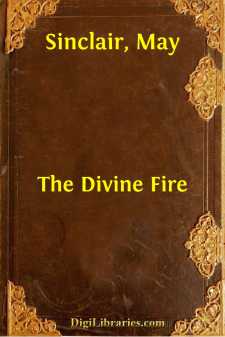Categories
- Antiques & Collectibles 13
- Architecture 36
- Art 48
- Bibles 22
- Biography & Autobiography 813
- Body, Mind & Spirit 142
- Business & Economics 28
- Children's Books 17
- Children's Fiction 14
- Computers 4
- Cooking 94
- Crafts & Hobbies 4
- Drama 346
- Education 46
- Family & Relationships 57
- Fiction 11829
- Games 19
- Gardening 17
- Health & Fitness 34
- History 1377
- House & Home 1
- Humor 147
- Juvenile Fiction 1873
- Juvenile Nonfiction 202
- Language Arts & Disciplines 88
- Law 16
- Literary Collections 686
- Literary Criticism 179
- Mathematics 13
- Medical 41
- Music 40
- Nature 179
- Non-Classifiable 1768
- Performing Arts 7
- Periodicals 1453
- Philosophy 64
- Photography 2
- Poetry 896
- Political Science 203
- Psychology 42
- Reference 154
- Religion 513
- Science 126
- Self-Help 84
- Social Science 81
- Sports & Recreation 34
- Study Aids 3
- Technology & Engineering 59
- Transportation 23
- Travel 463
- True Crime 29
May Sinclair
May Sinclair (1863-1946) was an influential British novelist and critic, renowned for her contributions to modernist literature. She is credited with coining the term "stream of consciousness" to describe a narrative technique that seeks to depict the multitudinous thoughts and feelings which pass through the mind. Sinclair's notable works include "The Life and Death of Harriett Frean" and "Mary Olivier: A Life," which explore themes of women's independence and psychological depth.
Author's Books:
Sort by:
by:
May Sinclair
INTRODUCTION This is a "Journal of Impressions," and it is nothing more. It will not satisfy people who want accurate and substantial information about Belgium, or about the War, or about Field Ambulances and Hospital Work, and do not want to see any of these things "across a temperament." For the Solid Facts and the Great Events they must go to such books as Mr. E. A. Powell's...
more...
by:
May Sinclair
I CHILDREN i Anne Severn had come again to the Fieldings. This time it was because her mother was dead. She hadn't been in the house five minutes before she asked "Where'sJerrold?" "Fancy," they said, "her remembering." And Jerrold had put his head in at the door and gone out again when he saw her there in her black frock; and somehow she had known he was afraid to...
more...
by:
May Sinclair
CHAPTER I Everybody knew that Miss Audrey Craven was the original of "Laura," the heroine of Langley Wyndham's masterpiece. She first attracted the attention of that student of human nature at Oxford, at a dinner given by her guardian, the Dean of St. Benedict's, ostensibly in honour of the new Master of Lazarus, in reality for his ward's entertainment and instruction in the...
more...
by:
May Sinclair
"Pussycat, Pussycat, where have you been?" "I've been to London, to see the Queen.""Pussycat, Pussycat, what did you there?" "I caught a little mouse under the chair," Her mother said it three times. And each time the Baby Harriett laughed. The sound of her laugh was so funny that she laughed again at that; she kept on laughing, with shriller and shriller squeals....
more...
by:
May Sinclair
The curtain of the big bed hung down beside the cot. When old Jenny shook it the wooden rings rattled on the pole and grey men with pointed heads and squat, bulging bodies came out of the folds on to the flat green ground. If you looked at them they turned into squab faces smeared with green. Every night, when Jenny had gone away with the doll and the donkey, you hunched up the blanket and the stiff...
more...
by:
May Sinclair
I 1 Barbara wished she would come back. For the last hour Fanny Waddington had kept on passing in and out of the room through the open door into the garden, bringing in tulips, white, pink, and red tulips, for the flowered Lowestoft bowls, hovering over them, caressing them with her delicate butterfly fingers, humming some sort of song to herself. The song mixes itself up with the Stores list Barbara...
more...
by:
May Sinclair
CHAPTER I Prologue.—Miss Quincey Stops the Way "Stand back, Miss Quincey, if you please." The school was filing out along the main corridor of St. Sidwell's. It came with a tramp and a rustle and a hiss and a tramp, urged to a trot by the excited teachers. The First Division first, half-woman, carrying itself smoothly, with a swish of its long skirts, with a blush, a dreamy intellectual...
more...
by:
May Sinclair
You may say that there was something wrong somewhere, some mistake, from the very beginning, in his parentage, in the time and place and manner of his birth. It was in the early eighties, over a shabby chemist's shop in Wandsworth High Street, and it came of the union of Fulleymore Ransome, a little, middle-aged chemist, weedy, parched, furtively inebriate, and his wife Emma, the daughter of John...
more...
by:
May Sinclair
Three times during dinner he had asked himself what, after all, was he there for? And at the end of it, as she rose, her eyes held him for the first time that evening, as if they said that he would see. She had put him as far from her as possible, at the foot of her table between two of the four preposterous celebrities whom she had asked him, George Tanqueray, to meet. Everything, except her eyes, had...
more...
by:
May Sinclair
CHAPTER I Horace Jewdwine had made the most remarkable of his many remarkable discoveries. At least he thought he had. He could not be quite sure, which was his excuse for referring it to his cousin Lucia, whose instinct (he would not call it judgement) in these matters was infallible—strangely infallible for so young a girl. What, he wondered, would she say to Savage Keith Rickman? On Saturday, when...
more...


